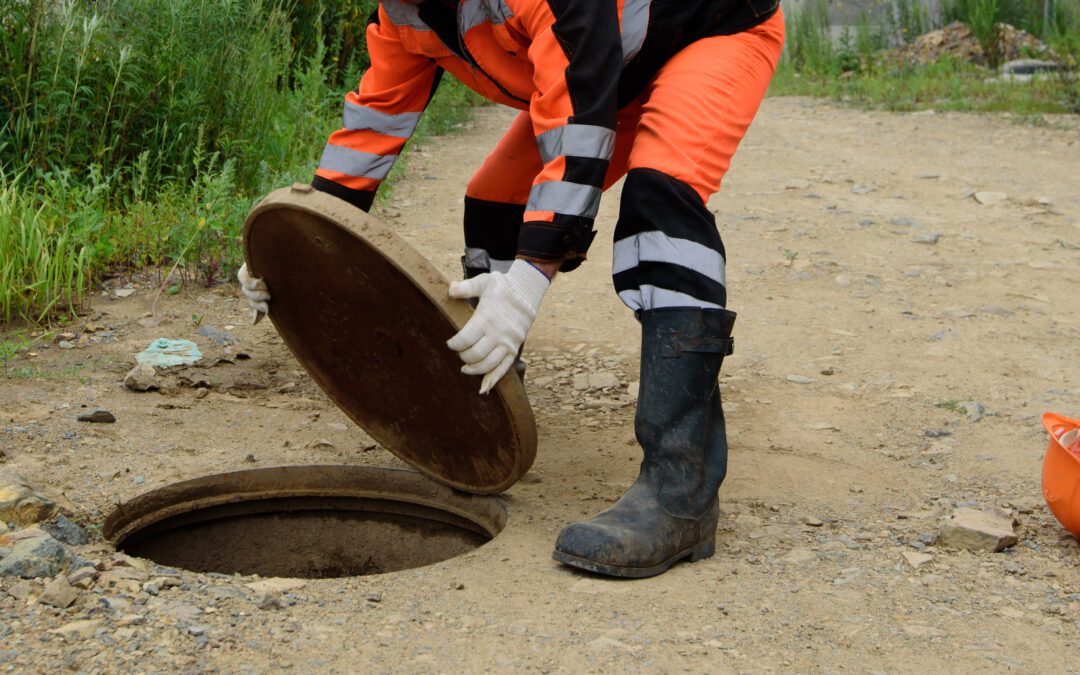As insignificant as it may seem, sewer odor can be a massive problem when it happens in your building, whether you own the building or it’s your place of employment. Sewer odor can be very bothersome and has negative effects, especially if the property is commercial. The offensive smells will affect customers in such a way that any businesses situated in the building may suffer the consequences. It can even drive away current employees, or in a worst case scenario, cause health problems. It doesn’t matter how clean your building environment is, if there is a bad smell that surrounds the people constantly, any kind of temporary masking techniques will be pretty much useless. Such odors are the result of a sewer line issue and will inevitably require a sewer line repair or sewer line replacement.
So what’s the cause behind these awful odors that often originate from mysterious parts of the building and later become a major problem? Go Direct Plumbing Sewer & Water, your Denver sewer line repair experts, have compiled everything you need to know about sewer odors including why the subject is so important and should’t be ignored!
What’s the cause of sewer odor?
Sewer odor is technically the sewer gas that comes out of the building’s sewer system. This gas is actually a mixture of certain inorganic gasses that contain hydrogen sulfide, ammonia, carbon dioxide, methane and nitrogen. Among these, hydrogen sulfide, ammonia and methane have a naturally foul smell and this is typically the root cause behind bad sewer odors.
Every sewer line releases this combination of gasses but if released in very small amounts, which is usually the case, all of it is almost odorless. In fact, they’re often not even detected by the human nose. However, when the accumulation is built up more significantly, the odor becomes more and more bothersome and even has the potential to harm a person’s respiratory systems.
How do sewer odor gasses get into buildings?
Sewer gasses don’t typically just enter buildings. Rather, they escape through various routes like restrooms, basements, janitorial closets, vents, etc. Gasses like these are obviously meant to be directed outside. But, thanks to careless plumbing mishaps, it’s possible that sewer gas can enter the building directly and worse, it can stay in the building long enough to start bothering people.
There are various possible routes from which sewer odor can enter a building. These are the routes that you should be checked upon immediately if your building has a sewer odor problem.
Blocked vents: Facilities usually have actively running vent systems that are there to facilitate plumbing. The primary purpose of a plumbing vent is to nullify the atmospheric pressure that is created when waste water runs through various plumbing systems. Unfortunately, when there’s a blockage in a vent, the gas cannot escape out of the building anymore and starts building up inside causing the offending odor issues.
Damaged drain lines: A damaged or cracked drain line can also be the origin of a foul sewer smell in a building. Because of a cracked or damaged line, the gasses are released into the building itself rather than being carried outside. This route is a very rare one for raw sewage and the accompanying sewer gasses, but can be the result of a building’s age or catastrophic events like an earthquake, flooding, etc. In the absence of urgent attention and proper sewer line repair, damaged drain lines can be a bigger issue.
Dry traps: Dry traps are considered the most common reason for sewer gas issues. A dry trap is a very simple device that lends itself well to a plumbing mishap. Consisting of a U-shaped piping and tubing, it connects the sewer lines with restrooms and janitorial closets. When gasses accumulate in a dry trap, they release the gas into the building rather than taking it out.
Are sewer gasses hazardous?
Sewer gasses made up of hydrogen sulfide, ammonia, and methane are harmful if inhaled closely because of the concentration levels. They can have a dangerous and depressive effect on the human neural system and can even be fatal at a point. But, when they are released with other gasses as a mixture from sewers, the concentration is pretty low which is why they aren’t particularly harmful. Without a professional sewer line repair or full sewer line replacement, the gasses will become more and more bothersome and irritating rather than being physically fatal.
How to stop sewer odor permanently?
To temporarily tackle a sewer odor problem caused by a dry trap, simply pour liquid down the dry trap so that the gasses dissipate and the odor goes away. But, because this is only a temporary solution, when the trap goes dry again the smell will come back. Cleaning blocked vents and repairing damaged drain lines is almost impossible to do on your own. The best solution to combat the odor issues caused by these particular situations is to get professional help. A professional sewer line repair company, such as the experts here at Go Direct Plumbing Sewer & Water, is an excellent example of a go-to solution for all sewer-related issues including the removal of sewer odors in buildings.
Are you experiencing a sewer line issue in your building resulting in offensive sewer odors? One of Go Direct’s Denver sewer line repair specialists is here to help you diagnose your problem. We’re the most trusted sewer line repair and sewer line replacement contractors in the metro area with over 50 years of combined experience. We know how to get the job done right, quickly and cost-effectively. Contact us today for more information.

